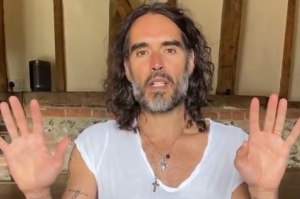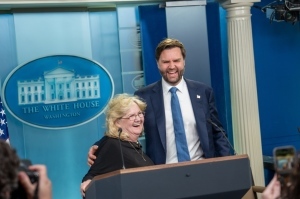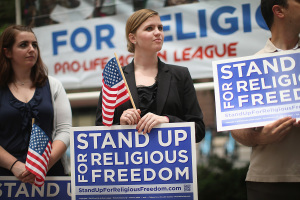Russell Moore: Religious Right Has Become the People They Warned Against
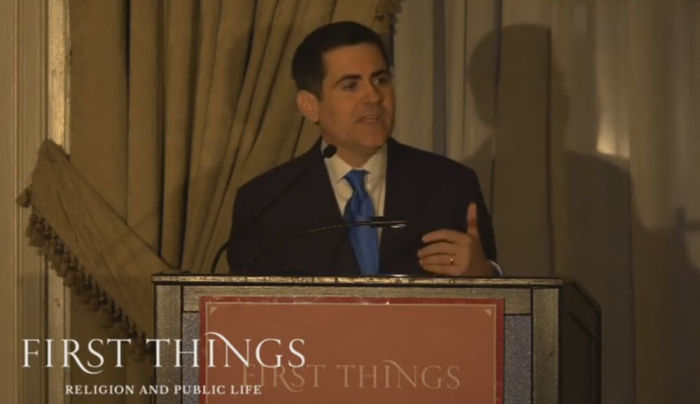
Christian conservatives, or the "Religious Right," have become the very people they so ardently warned against, according to the president of the public policy wing of the Southern Baptist Convention.
In front of a crowd of around 400 guests at the Union League Club on 37th street in New York City Monday, First Things held their annual Erasmus Lecture, and the Ethics & Religious Liberty Commission President Russell Moore gave a lecture addressing the question: "Can The Religious Right Be Saved?"
Moore's answer was both yes and no. Some things are worth preserving, while other vestiges cannot die quickly enough.
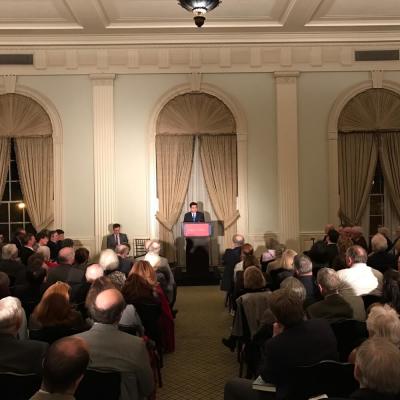
"I'm an heir of Bible Belt America and also in many ways a survivor of Bible Belt America," Moore said noting that he grew up memorizing scriptures in spelling bee type drills, enmeshed in the ecosystem of evangelical Christianity.
In a speech lasting almost an hour, Moore noted that during his teenage years he witnessed the rank hypocrisy among fellow believers, their indifference to or even complicity in racial injustices, the buffoonish words of Christian leaders and the utter hollowness of cultural Christianity particularly regarding politics. These Bible Belt churches, which delivered "Christian voter guides" instructing the faithful on the supposed biblical position on the line-item veto, precipitated the recognition that there had to be more to following Christ and the Church's public witness than this.
Today, given the increasingly hostile climate, many American Christian conservatives are being forced to face their dwindling influence and the futility of old guard leaders who simply do not speak for the younger generations of evangelicals, even as those younger evangelicals share many of their convictions.
Moore, who has been consistently outspoken in his opposition to Donald Trump, further noted that he recognizes the hard decisions people have before them in this particular election, which many characterize as a "lesser of two evils" choice. But in exchange for political influence, he contended, some are forgetting an essential gospel question: What does it mean to be saved?
"In the 20th century a fundamentalist leader once defined a compromising evangelical as 'a fundamentalist who says to a liberal, I'll call you a Christian if you'll call me a scholar,'" Moore said.
"It seems now," Moore added, "that we have some evangelicals that are willing to say to politicians: 'I'll call you a Christian, if you'll just call me.'"
Such blatant compromise is not lost on those outside of the Christian faith who are watching, and the witness for Christ is badly damaged.
"The Religious Right establishment is one big Wittenberg door, with an ever-expanding target where a nail should be," Moore said. "The movement's institutional matrix seems increasingly exhausted, resentful and at war with its own future."
And the crack-up of Religious Right institutions and the accompanying cringeworthy antics the public has seen this past year has never been more apparent than in the contentious 2016 presidential election cycle.
"The divisions remain at the part where the old line Religious Right political establishment normalized this awful development all along ... since religious conservatives were about the only group willing to defend morally some of this behavior when almost no one else would but [Trump] did not give us this. This is a pre-existing condition."
"The Religious Right turns out to be the people the Religious Right warned us about," he continued.
The younger generation of evangelicals simply will not stand for this, Moore said. Contrary to the media narratives about millennial Christians liberalizing, Moore insists that younger evangelicals instead intend to prioritize the furtherance of the gospel, not right wing politics.
"There are no 22-year-old John Hagees," Moore acknowledged, but there are plenty of young solidly orthodox evangelical church planters committed to gospel faithfulness, a missional approach to the culture, and sound expository preaching of the Bible.
From Moore's standpoint, to be effective in this culture, this rising generation of faithful Christians have to forge collaborative issue-by-issue coalitions when speaking to politics, dispense with alarmist eschatology and prosperity gospel hucksterism, and create robust, disciplined conscience-shaping church communities.
"A Christianity without a clear gospel is just moralism; but a Christianity also without visible churches is backward looking and seething with rage with what has been lost," Moore said.
"The important question is whether the Religious Right will have for them that Word above all earthly powers which no thanks to them abideth. The important question is whether a people defined by religion have for the world, good news," he concluded.
Watch the full speech below:


















